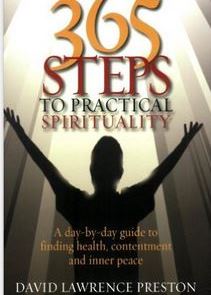As a sufferer myself for many years, I have taken a close interest in the causes and remedies for sleep disturbances and insomnia.
Insomnia is the inability to fall asleep or to stay asleep as long as we want. It comes in many forms and has many causes. Primary insomnia is a chronic, longstanding problem that bears little relationship to current conditions. Secondary insomnia occurs when sleeplessness is related to other issues in a person’s life, for instance, health concerns, money worries, pain, anxiety and depression.
More than a third of adults have problems sleeping and one in ten consider it a major problem in their lives. The groups most at risk are the over-60s, people suffering from emotional stress, shift workers and those who frequently travel through different time zones.
The day can be a real struggle if we haven’t had a good night’s sleep. Energy and performance levels suffer and we can become anxious, accident prone and bad tempered. Poor quality sleep can result in memory loss, poor concentration, indecisiveness, low libido, headaches, depression and many other problems.
Ironically, the thing that prevents people sleeping the most is worrying that they won’t be able to sleep! We can’t ‘make’ ourselves go to sleep and more than we can make ourselves remember things.
Insomnia can be categorised in various ways:
- Transient/short term (less than a week). This can be caused by other factors, such as changes in the sleep environment (noise, heat, light, cold etc.), timing of sleep, stress, jetlag, digestive problems, and so on.
- Acute/medium term (up to a month). Acute insomnia is usually stress and/or worry related.
- Chronic/long term (more than a month). This can be caused by other disorders such as high levels of stress, trauma, fatigue, heightened sensitivity to light and noise, and so on.
- Initial – difficulty falling asleep when first getting into bed. Initial insomnia is commonly due to emotional disturbances, anxiety, phobic states and depression.
- Matutinal insomnia – waking early in the morning and being unable to get back to sleep. Early morning waking can be a sign of depression and is also common with ageing.
- Inverted sleep rhythm – the sufferer doesn’t feel sleepy at bedtime and may feel tired during the day. This is very common when people take sedatives.
Common remedies
There are many things you can try if you suffer from insomnia without resorting to drastic measures like sleeping pills. The following remedies have varying degrees of success:

1. A change of habits
A simple change of habits is unlikely to offer relief for chronic and acute insomnia.
- Try to maintain regular bed times and waking times, including at weekends.
- Use the bed only for sleep and sex, not work.
- Eat at least two hours before you go to bed. Late eating can cause indigestion, which disturbs sleep. Drinking close to bedtime can also disturb your sleep.
- A regular waking time in the morning strengthens the circadian function and helps with getting to sleep at night.
- Exposure to natural light during the day aids sleep.
- Avoid stimulants (especially caffeine) after 6pm. An early evening drink such as chamomile tea can be helpful.
- Avoid alcohol – it may help you fall asleep but will dehydrate you, causing you to wake early with a dry mouth and throat.
- Exercise regularly, but don’t do anything strenuous within three hours of bedtime. Regular exercise makes it easier to fall asleep and helps you sleep more deeply, but can make sleep more difficult if too close to bedtime.
- Clear your mind. If your mind is over active as bedtime approaches, write your worries down and make a list of things you have to do tomorrow.
- Nightly rituals can send a strong message to the unconscious that it is time for sleep, for example, a warm bath, listening to soothing music or reading something calming.
- If you need to make up for a few lost hours, have a daytime nap rather than sleeping late. You can catch up on your sleep without disturbing your natural sleep-wake rhythm. Nap in the early afternoon, and limit it to thirty minutes.
- If you find yourself getting sleepy way before your bedtime, do something mildly stimulating to avoid falling asleep. If you give in to the drowsiness, you may wake up during the night and have trouble getting back to sleep.
2. Relaxation and Meditation
Some people have eased their sleeping problems by practising physical and mental relaxation, mindfulness practice and meditation. Deep, rhythmic breathing helps enormously if you want to get to sleep. Combine it with visualising a peaceful scene.
Practise during the day so that the skill is ingrained when you need it. Two twenty-minute daily sessions can be helpful, and you can use a self-hypnosis/relaxation audio tape or DVD if it helps.

3. Over-the-counter (OTC) remedies
OTC remedies include herbs such as valerian and chamomile and various synthetic preparations. The main active ingredient in OTC sleeping pills is antihistamine. While the positive effects have not been medically verified through research, side effects such as next-day drowsiness, feeling off balance, constipation, urinary retention and dry mouth can be common. There are also questions about their effectiveness and safety in the long-term. As with any medication, it is advisable to consult your doctor before taking OTC sleep aids.
4. Pharmaceutical remedies
Pharmaceutical remedies include sleeping pills and other medications not specifically for insomnia but which cause drowsiness. In general, sleeping pills and sleep medications are most effective when used sparingly for short-term conditions, such as traveling across time zones or recovering from medical procedures.
Many doctors do not recommend use of prescription drugs over a long period due to the risk of side effects and addiction. Also, you may build up a tolerance, which means that you will have to take more and more for them to work. Recent research has also shown that they do not affect everyone equally: some are less effective for older people, while others actually work better in the over 65s. If in doubt, consult your doctor.
Of course, sleeping pills don’t cure the underlying cause of insomnia, and can even make the problem worse in the long run. You may come to rely on sleeping pills, and then be unable to sleep without them, and if you stop the medication abruptly, have withdrawal symptoms, such as nausea, sweating and shaking.
Note – it is illegal to drive in some countries after taking some sleeping medications.
5. Psychotherapy
If insomnia is caused by psychological factors, psychotherapy or even hypnosis may be used. The most common form is Cognitive Behavioural Therapy (CBT). CBT assumes that changing dysfunctional thinking or seeing it differently leads to changes in feelings and behaviour. CBT has been shown to be effective for the treatment of a variety of conditions including anxiety, low self-confidence, phobias and relationship problems.
6. Bioenergetic Approaches
Various devices have been developed in the past half century which use the clinically proven technology of low frequency, short duration, low intensity magnetic pulses to influence body tissues.
The Earth produces natural magnetic fields (Pulsed ElectroMagnetic Fields or PEMF) which are fundamental to our health and wellbeing. These fields are a natural feature of our environment and as necessary for our health as good food, fresh water, warmth, sunlight and oxygen. PEMF in the natural world varies from 0-30 Hz (Hertz). The Earth’s magnetic field resonates at 11 Hz, waves from the atmosphere (known as ‘Shuman Waves’) and geomagnetic frequencies from the earth below at 7.8 Hz. Waves around this level are energising and healthy. Too high, and the brain is too highly aroused making sleep difficult. Alarmingly, many household appliances give off at least 50-60 Hz, and (even more alarmingly) computers and mobile (cell) phone even more.
PEMF therapeutic appliances aim to counter the harmful effects of man-made fields with pulsed, low level frequencies. They come in various guises. You can lie on a magnetic field mat costing two or three thousand pounds or more, or place a small device on the body, or wear one on the wrist. PEMF therapy, used daily – has many benefits. In essence, PEMF re-energises the cells, and in addition, have been shown to lower cortisol (the stress hormones) levels, improve sleep quality, blood pressure and cholesterol levels and relax the muscles.

It is my hope that one day – soon – PEMF technology will be accepted by the medical profession so that it can help many more people. Let’s see!
© David Lawrence Preston, 2019

Follow me on Facebook and Twitter, @David_L_Preston
Important
Nothing in this article is intended as a substitute for professional medical advice. Always consult a doctor if you have any health concerns that may require diagnosis or treatment. Any statements made concerning products and services represent the opinion of the author alone.






